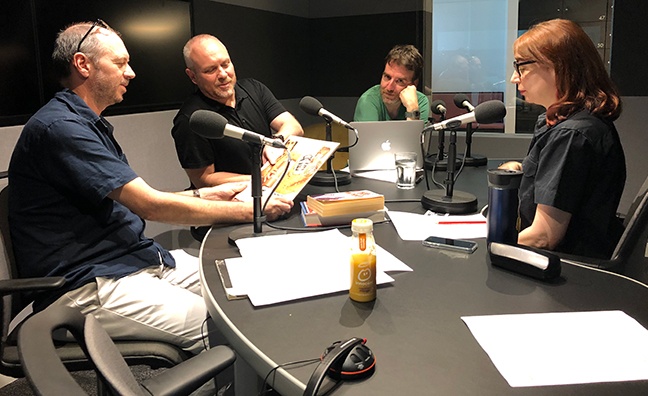In the latest of our series, Mojo editor John Mulvey outlines why the title entered the podcast space for the first time last year. Recent episodes have included deep dives into the music of The Beatles, Bob Dylan, Miles Davis and Joni Mitchell…
How did Mojo’s podcast come about?
John Mulvey: “I guess like most magazines, it’s something we’ve talked about for ages, but we didn’t want to rush it: it felt more important to wait until we came up with a good idea, and a good format, and then do it properly. I think there’s always demand for decent podcasts that don’t patronise their audience, so producing thoughtful, entertaining, evergreen content about the most significant artists of the past 50/60 years would be worth putting out there.”
Does the podcast have a different purpose to the magazine?
“We’ve devised the format to complement the magazine rather than compete with it. If fans of David Bowie, Brian Wilson and Kate Bush discover us via the podcast, that’d be great. But it’d be crazy to mount this kind of project purely in terms of brand awareness. We know there’s a huge international audience for what Mojo does, who share our tastes and values, and who’d like to hear from us more frequently. Hopefully Mojo Innovators does that job, too.”
Is there anything you personally feel the Mojo podcast can offer that other brands can’t?
“The idea isn’t that different from what we do in the magazine each month: use our unrivalled knowledge and storytelling skills to find fresh insights on the greatest artists. We really wanted to avoid contrarianism and shock provocations to manufacture conflict; that sort of strategy feels kind of trashy and immature for our audience. I think we’re showing how Jenny Bulley, our associate editor, and a small bunch of writers, who all carry their expertise lightly, can celebrate these heroes without recourse to cliché and predictability.”
Will there be room for artist interviews in the future?
“We’ll see how it goes. We’ve got a long list of artists who’d make brilliant subjects, and a load of writers who have interesting things to say about them. I wouldn’t like to speculate too much on how it evolves.”
It’s still relatively early days, but what kind of impact has the podcast had since starting?
“Really good, given that we only launched on June 6 [2019]. We’ve had extremely positive feedback from listeners. I think there’s massive potential for growth: our audience is increasingly comfortable with drawing on a wider and wider range of information sources that complement each other through the day rather than clash, and podcast listening can often be quite an intimate, companionable experience that isn’t quite the same as other media. I see the landscape as an analogue to the way Mojo’s audience consume music now: they’re not focused on just vinyl, or CDs, or streaming – they understand that all these different delivery mechanisms have a useful place in their lives.”
* Be sure to check out other entries in our Lockdown Listening series, including podcasts such as The Receipts, Q Magazine, BBC Radio 1 DJ Daniel P Carter's SWIM Podcast, How Did You Manage That?, Rolling Stone and Metal Hammer. To make sure you can access Music Week wherever you are, subscribe to our digital issue by clicking here.











